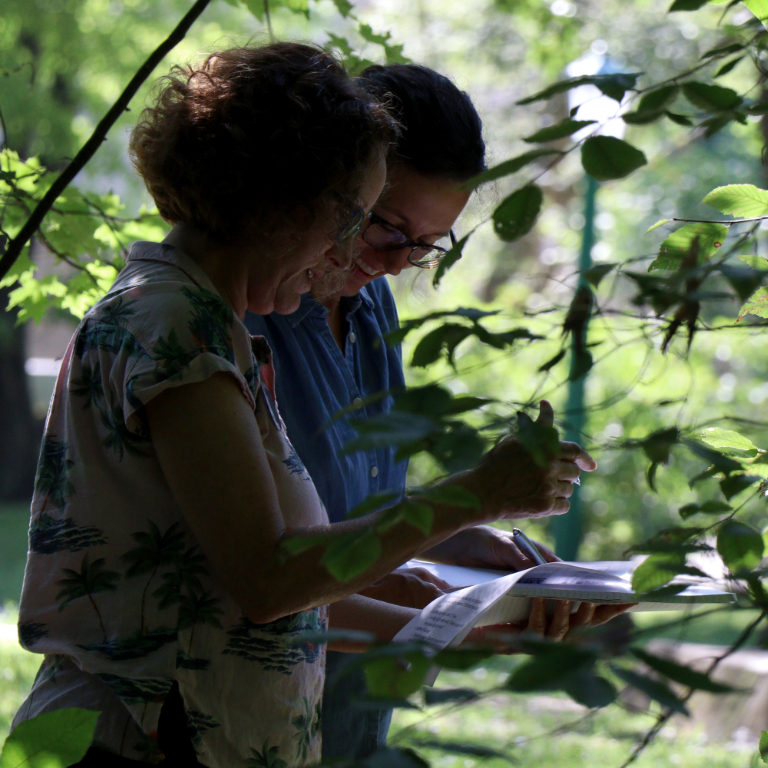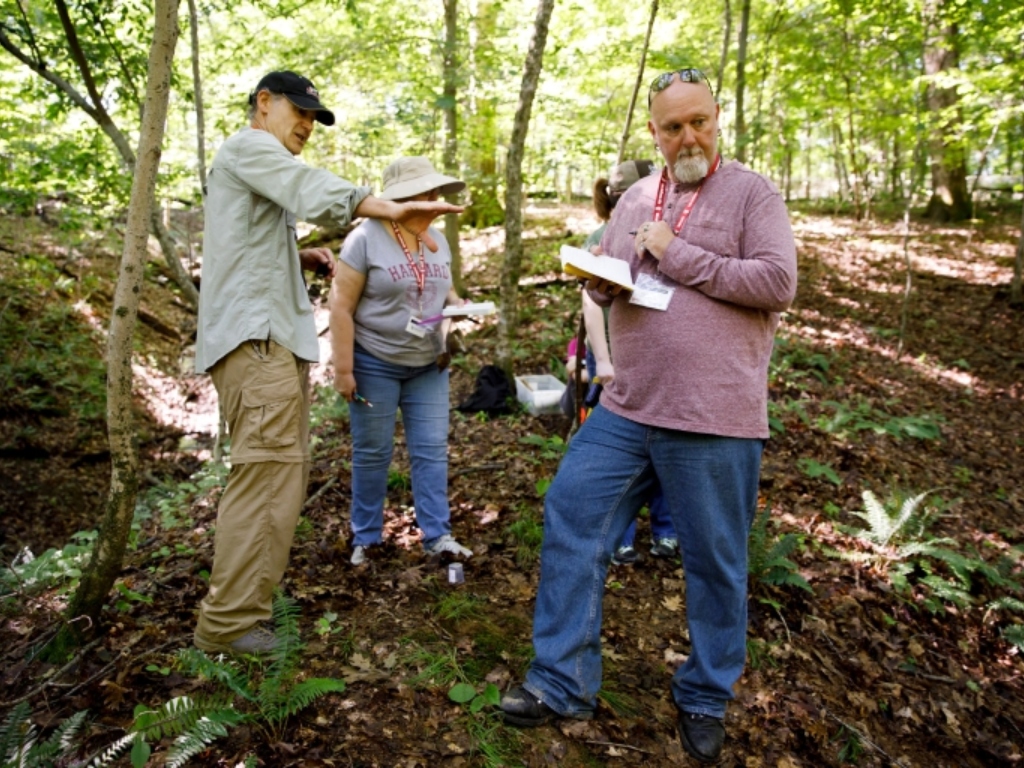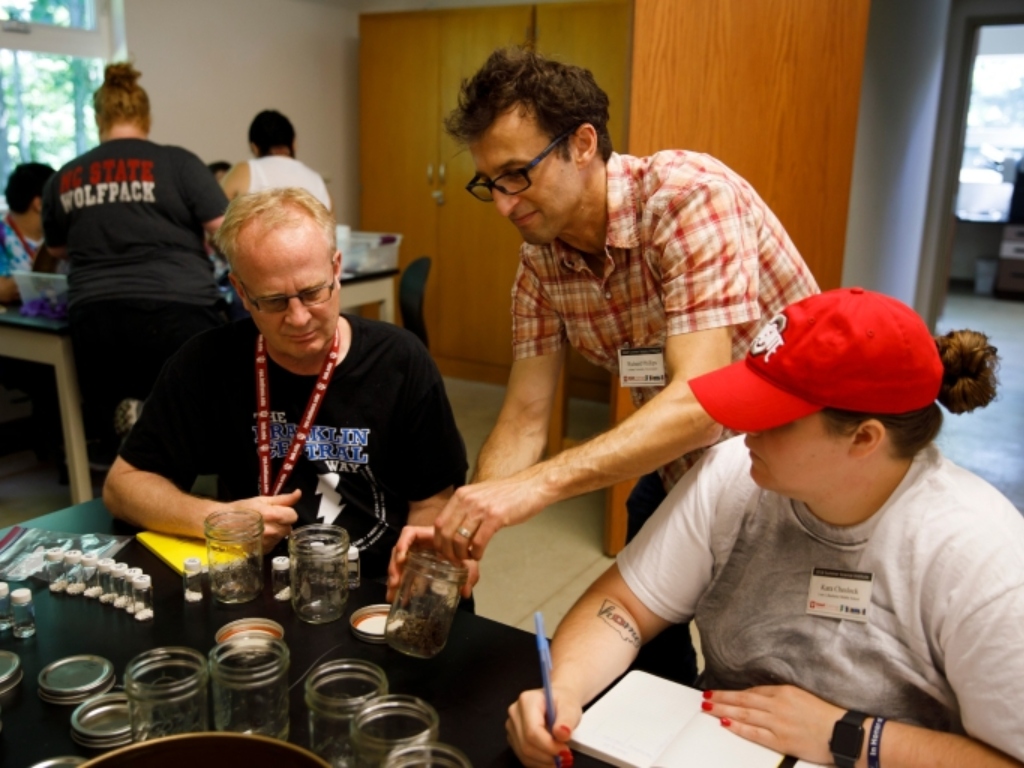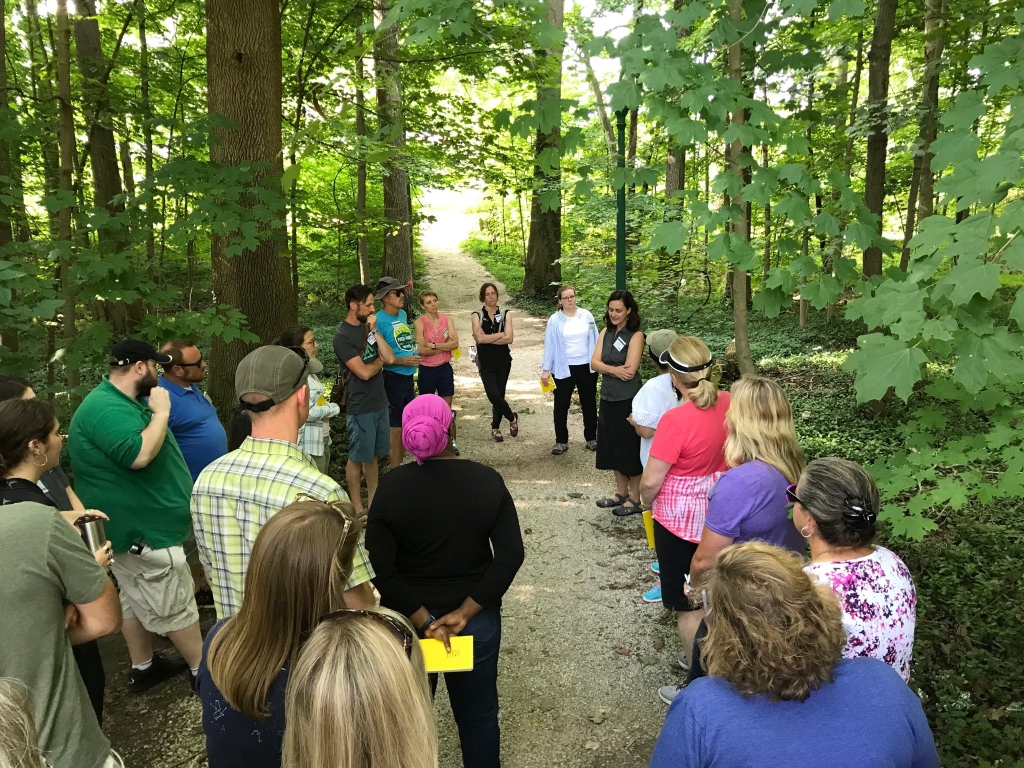Since 2017, science teachers from across Indiana have been traveling to the Indiana University Bloomington campus to attend workshops on environmental change and its impact on communities.
The ideas, skills, and messages they take back to the classroom are helping students cut through the noise surrounding climate science and focus on data-driven learning.
To date, more than 70 elementary, middle, and high school teachers have attended the Educating for Environmental Change Summer Science Institute (SSI) workshops, which are free for educators and include funding for travel, meals, and housing. Collectively, these teachers have reached more than 7,000 students since the training began.
The initiative is led by the Environmental Resilience Institute, part of IU's Prepared for Environmental Change Grand Challenge, in collaboration with the IU Research & Teaching Preserve, the IU Center for P-16 Research and Collaboration, and the WonderLab Museum of Science, Health & Technology.
Teacher applications for the 2020 workshops, set for June 22-26, are currently being accepted.
A survey by the Yale Program on Climate Change Communication reports that 72 percent of Hoosiers and 79 percent of Americans agree that schools should teach children about the causes, consequences, and potential solutions to climate change. Finding the right mix of information and activities that fit neatly into existing Indiana education standards can be a challenge for teachers, however. Furthermore, teachers must frequently overcome misinformation surrounding the science of climate change.
“Climate change is something that’s important for kids to understand,” said Sandi Sears a sixth-grade science teacher at Throop Elementary School in Paoli, Ind and a 2019 SSI alum. “At the same time, you don’t want to overwhelm students with doom and gloom. You want to inspire them to take action and be hopeful.”
SSI connects Hoosier teachers with age-appropriate resources to overcome these challenges. The three-day workshops provide educators with opportunities to learn about the latest developments in climate research from IU scientists, conduct hands-on exercises that illustrate the impact of climate change on the environment, and network with peers on how to approach the subject in the classroom.
Through labs and discussion, the workshops deepen educator understanding of key concepts related to environmental change, including how we know the climate is changing, how humans are accelerating these changes, the impacts of these changes, and steps to mitigate the severity and impact of climate change.
“Climate change is here whether students are actually learning the real science behind it or whether teachers have the right resources to teach it,” said Adam Scribner, Director of STEM Education Initiatives for the Indiana University School of Education and one of the workshop organizers. “The most important thing we do is give teachers face-to-face time with climate scientists. We also supply teachers with strategies to get their students to work out the science for themselves rather than just talk about the problem.”
A highlight of the workshops each year places teachers in the field where they are asked to collect soil samples, analyze tree cores, and record observations of the local environment. These types of exercises help teachers break out of their routines and think about how they can excite the next generation about science, said Kirstin Milks, a workshop organizer and science teacher at Bloomington South High School.
“If a teacher has a couple of trees outside of their schools, they can do this with their students," Milks said.
Carrie Huffman, a science teacher at Noblesville High School and a 2018 SSI alum, said she continues to use concepts introduced in the workshops to engage the 175 sophomores and junior she teaches each year.
“It’s very energizing to dive into a topic and hear about what others are doing in the classroom,” Huffman said. “Going to these workshops is the best way for teachers to network and get the curriculum materials they need to teach climate change.”






